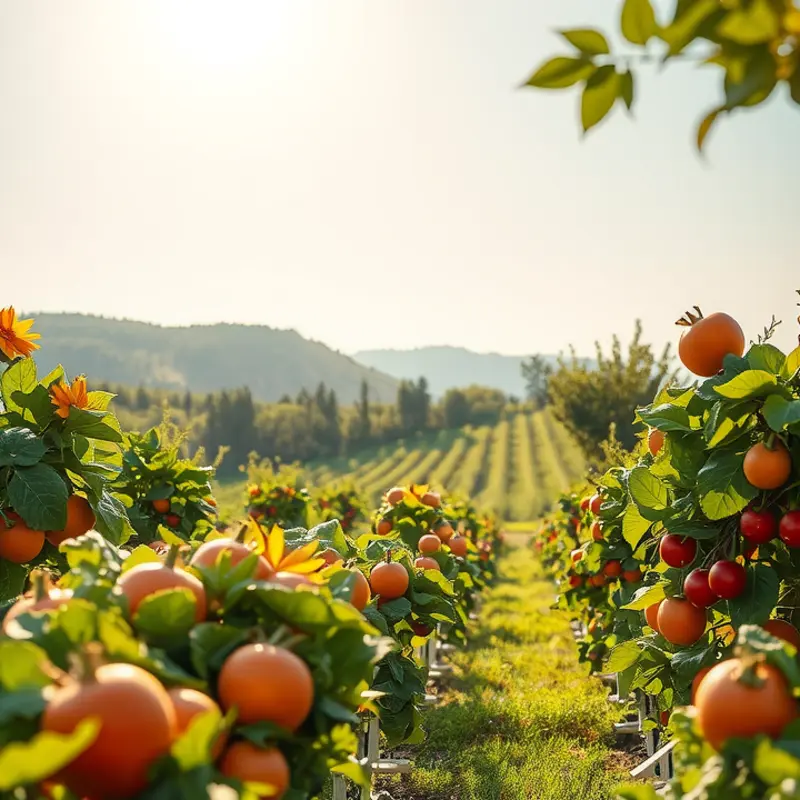For many, coffee is an essential part of daily life. However, the environmental toll of traditional coffee production is significant, leading many to explore sustainable alternatives. From chicory to dandelion root, numerous eco-friendly options cater not only to your caffeine cravings but also to the earth’s well-being. Transitioning to these alternatives doesn’t mean sacrificing flavor or enjoyment; instead, it means making choices that positively impact you and the environment.
Exploring Sustainable Brews: The Coffee Alternatives

Traditional coffee drinkers seeking a sustainable alternative have a variety of eco-friendly options to explore. Among the top contenders are chicory root, dandelion root, matcha, and herbal blends, each offering unique tastes and benefits.
Chicory root, a popular coffee alternative, has a robust flavor resembling that of roasted coffee beans. It supports liver health due to high inulin content, a prebiotic fiber. The cultivation of chicory often requires fewer resources than coffee, making it a more sustainable choice. Many find it an enjoyable drink on its own or blended with coffee for a reduced caffeine experience.
Dandelion root presents another compelling option. When roasted, it yields a rich, earthy flavor, similar to chicory and coffee but with a slightly more delicate aftertaste. Dandelion roots are easy to grow and harvest, even in small, home-grown setups, encouraging local production and reducing transportation emissions. They are also packed with dietary fiber and support digestion, adding a valuable health component to your beverage.
Matcha, a finely ground powder of specially grown and processed green tea leaves, offers a vibrant and earthy flavor. As a powerhouse of antioxidants, it provides enhanced energy without the caffeine crash commonly associated with coffee. Matcha production typically involves fewer resource-intensive processes compared to coffee, and with its growing popularity, producers are increasingly focusing on organic and sustainable farming methods. Furthermore, matcha encourages mindfulness through its traditional preparation rituals, aligning with holistic well-being practices.
Herbal blends crafted from ingredients like rooibos, chamomile, and hibiscus offer entirely caffeine-free experiences. These blends can be customized to suit any palate, containing a bouquet of natural flavors and colors without the need for sweeteners or additives. Many of the herbs used are grown in low-impact environments and are easily sourced from organic farms prioritizing sustainable practices. Herbal beverages often contribute to a relaxed state, perfectly integrating with mindful eating experiences such as those discussed in mindful diet cycling.
Integrating these alternatives into your daily routine not only benefits personal health but also embraces environmentally friendly practices. These beverages minimize reliance on the coffee industry, which faces ongoing challenges related to land usage and pesticide runoff. By choosing these sustainable options, individuals contribute to global efforts aimed at environmental conservation and reducing carbon footprints, proving that small daily choices can have a lasting impact on our planet.
Crafting Your Perfect Eco-Friendly Brew

Diving into the world of eco-friendly coffee alternatives opens up a myriad of flavors and sustainable practices. Each choice not only satiates your craving for a robust morning pick-me-up but also minimizes your environmental footprint.
Exploring Brewing Methods
Eco-friendly coffee alternatives range from chicory, dandelion root, to roasted barley. Each option has its own unique brewing method that best extracts flavor while preserving its inherent qualities. For instance, chicory, known for its deep, nutty flavor, shines when brewed as a concentrate. Start by simmering ground chicory for about 10 minutes in hot water, then strain to separate. This method enhances its full-bodied taste, making it perfect as a coffee substitute on its own or combined with plant-based milks.
Dandelion root provides a slightly bittersweet profile reminiscent of traditional coffee. Opt for a French press to unlock its potential. Coarsely grind roasted dandelion root, add hot water, and let it steep. The resulting brew is rich in flavor, offering a hint of earthiness that pairs well with a touch of sweetness.
Roasted barley is an outstanding choice for those who enjoy the malty notes found in beers. Use a drip coffee maker for a smooth and balanced cup. Simply add ground roasted barley to the filter, start the drip cycle, and enjoy the tantalizing aroma as it fills your kitchen.
Flavor Pairings for an Enhanced Experience
Embrace the depth of flavor in these alternatives by pairing them thoughtfully. Chicory pairs excellently with a slice of homemade banana bread or whole grain biscuits, enhancing the earthy undertones while creating a harmonious taste experience.
Dandelion root, with its subtle bitterness, complements citrus-based desserts, like lemon tarts or orange marmalade toast. This pairing brings out the brighter flavors and balances sweetness with the natural bitterness of the root.
Roasted barley’s maltiness makes it a great match for dark chocolate or nut-based snacks, such as almond biscotti or peanut butter cookies. These combinations amplify the nutty undertones, offering a satisfying treat anytime.
Sustainability Tip
Opt for organic and fair-trade certified ingredients when crafting your brew. These certifications ensure that your ingredients are produced under sustainable farming practices, benefiting both the environment and farmers. For further insight into making environmentally-conscious choices, check out this guide on sustainable food traditions.
Leveraging responsibly sourced ingredients can elevate not only the taste but also the ethical value of your daily brew, making each sip truly satisfying. Remember that small changes in your coffee routine can have lasting positive impacts on the environment, creating a ripple effect of sustainability with every cup.
Final words
Making the switch to ethical coffee alternatives not only helps alleviate the environmental burden created by traditional coffee production but also opens new doors to a variety of flavors and wellness options. Embracing options like chicory, dandelion root, or herbal infusions can enrich your experience and foster a deeper connection to the planet. Each cup of your chosen brew can be a conscious decision, positively influencing your health and the ecosystem. In a world where every choice counts, being mindful about your beverage can pave the way for a more sustainable future.








